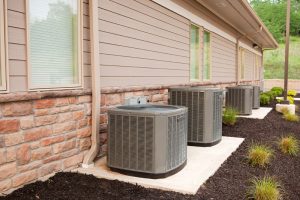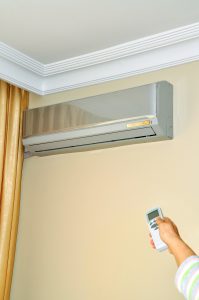Air conditioning a home through warm months and hot spells can become expensive. However, with the installation of a high-efficiency air conditioner you can reduce those steep bills to more manageable levels. The technology of cooling continues to advance each year, and with these advances comes ACs that use less power to produce greater levels of cooling.
The way you can determine the level of energy-efficiency from an air conditioning system is to check on its SEER. This technical specification will tell you how much energy the system will use and how that compares to the cooling power it produces. When you are in the market for a new AC, understanding SEER is crucial for locating the right system for you.
However, SEER isn’t the only piece of information you should know: there are many other considerations, and therefore you should always contact HVAC professionals to assist you with selecting new air conditioning in Winnetka, IL. Call Malek Heating & Cooling for the experienced technicians necessary to find the right AC for you. We’ve served the Chicagoland area since 1998.
What SEER Stands For and What It Means
The acronym SEER stands for “seasonal energy efficiency ratio.” It represents the ratio of cooling power an air conditioner produces (as measured in BTUs) to the amount of energy it consumes (in watt-hours) as measured over a whole season. A similar specification, EER (energy efficiency ratio), is measured over a single test. SEER gives you an idea of how much you can expect to pay for cooling during a whole season: the higher the number, the more efficiently the AC converts electricity into cooling, and the less expensive it is to run.
For most air conditioners, SEER falls between 14 and 20. In order for an air conditioner to qualify for the U.S. Department of Energy’s ENERGY STAR label, it must have a SEER of at least 14.5. Some high-end ACs can have 20 SEER or even greater.
Although SEER is important, you shouldn’t simply pick an air conditioner with the highest SEER available. There are more factors involved in properly and effectively cooling a home than energy-efficiency. For example, an air conditioner can have an astonishingly high SEER of 22, but if it isn’t sized right to cool your home, all its efficiency will go to waste. You want to find a balance of factors, including SEER, to locate the ideal air conditioner for your cooling needs and your budget plans.
Since you should never attempt to install a central AC on your own, make sure that you have the professional installers involved in the process from an early stage. Experts will help you select the air conditioning in Winnetka, IL that will do the all-around job you need for comfort and savings. Call Malek Heating & Cooling when you are ready to start searching for your perfect air conditioner.
Continue Reading
Tags: Air Conditioning, Winnetka
Posted in Air Conditioning | Comments Off on What SEER Means for Your Air Conditioner

